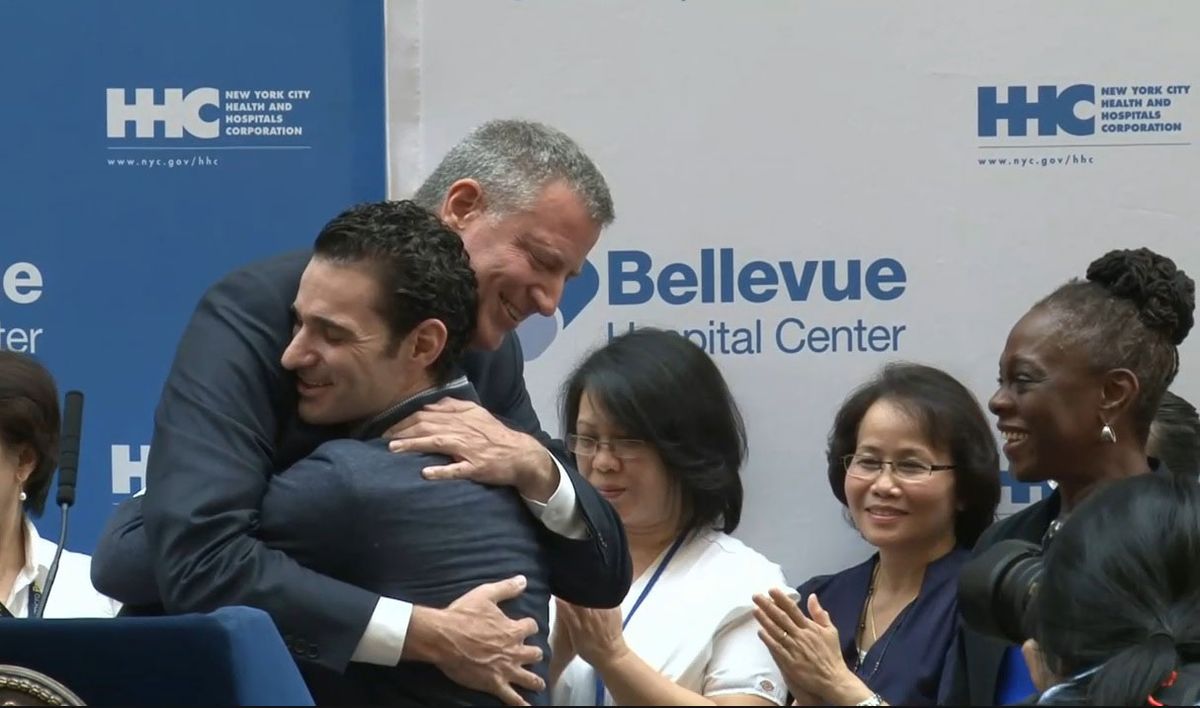NYC Doctor Who Had Ebola Leaves Hospital

New York doctor Craig Spencer, who was infected with Ebola while treating patients in Guinea, is now free of the virus and is leaving the Bellevue Hospital Center today (Nov. 11).
The 33-year-old doctor had been working with Doctors Without Borders during the ongoing Ebola outbreak in West Africa when he contracted the virus. He returned to New York on Oct. 17, and developed symptoms, including a mild fever, several days later, on Oct. 23. Spencer was immediately transferred to the hospital, and hours later he became the first person in the city to test positive for Ebola.
"Today I'm healthy, and no longer infectious," Spencer said at a news conference today, thanking the medical team who treated him for the "tremendous care and support" he received.
"I received an exceptional level of medical treatment, support and encouragement, from the whole medical and administrative team," Spencer said.
"New York City's first and only Ebola case was successfully treated," Mayor Bill de Blasio said at the conference. "Dr. Spencer is Ebola free, and New York City is Ebola free."
Spencer received experimental drugs as well as a plasma donated by former Ebola patient Nancy Writebol, who contracted the virus while working in Liberia and was treated in Atlanta. The plasma of a recovered patient may be helpful in treating other patients, doctors suspect, because it contains antibodies to the virus.
Spencer is the last of several U.S. healthcare workers who contracted Ebola while responding to the outbreak in West Africa and were successfully treated in the Unites States. In addition, two Texas nurses who contracted the virus while caring for the first Ebola patient diagnosed in the United States were also treated successfully and left the hospital recently. [2014 Ebola Outbreak: Full Coverage of the Viral Epidemic]
Sign up for the Live Science daily newsletter now
Get the world’s most fascinating discoveries delivered straight to your inbox.
"While my case has garnered international attention, it is important to remember that my infection represents but a fraction of the more than 13,000 reported cases to date in West Africa, the center of the outbreak, where families are being torn apart and communities destroyed," Spencer said.
He asked that the medical volunteers who go to work in West Africa do not face stigma and threat upon their return home.
"Volunteers need to be supported to help fight this outbreak at its source," Spencer said.
The mayor spoke about the stigma and discrimination that several hospital staff reported experiencing while Spencer was being cared for at Bellevue. "In the middle of this challenge, we have seen some unfortunate things," de Blasio said. "You never discriminate against someone who is helping others. There's no cause for anyone to be treated by anything but respect."
So far, all but one of the Ebola patients in the United Sates have recovered from the disease. The person who did not survive the disease was Thomas Eric Duncan, who was the first person to be diagnosed with Ebola in the United States.
Spencer's recovery adds to the evidence that early detection and intensive care are critical for surviving the Ebola disease, and limiting its spread. None of the people who had contact with Spencer after he returned to the United States have developed Ebola.
"My early detection, reporting and now recovery from Ebola speaks to the effectiveness of the protocols that are in place for health staff returning from West Africa," Spencer said. "I'm a living example of how those protocols work, how early detection is important for both surviving Ebola and ensuring that it's not transmitted to others."
Email Bahar Gholipour. Follow Live Science @livescience, Facebook & Google+. Originally published on Live Science.











